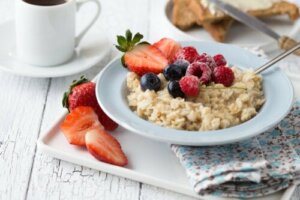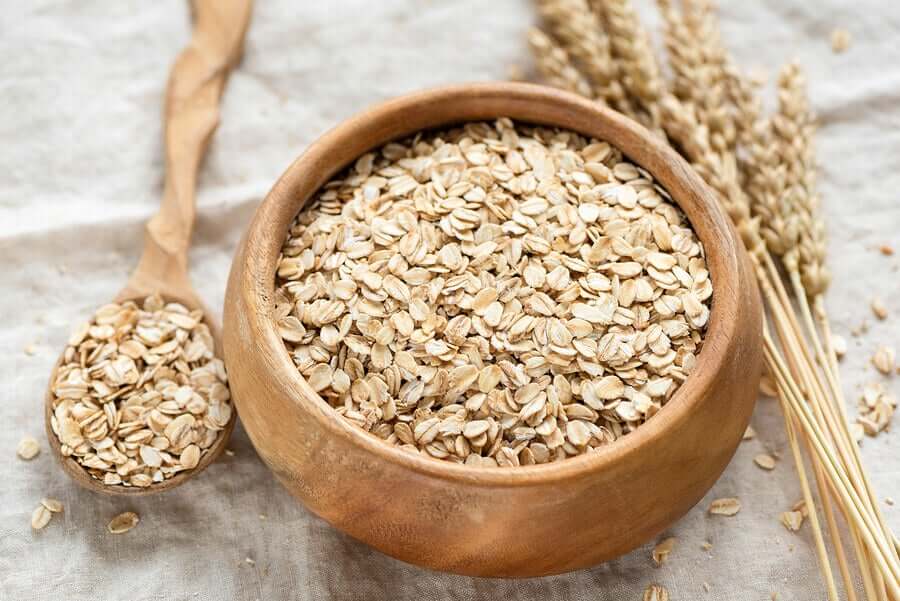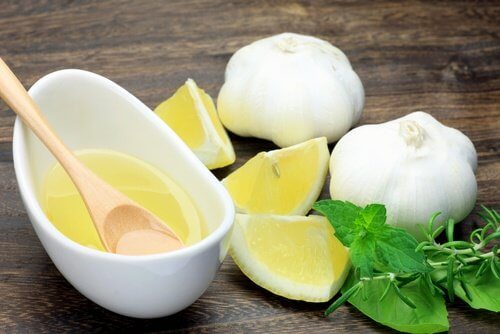5 Ways to Reduce Cholesterol in Your Breakfast


Written and verified by the doctor Gilberto Adaulfo Sánchez Abreu
Once you are diagnosed with high cholesterol levels, you need to start making certain changes in your lifestyle and, above all, in your diet. And what better way to get started than by looking to improve your breakfasts? To help you, here are some ways to reduce cholesterol at breakfast time.
Lowering cholesterol first thing in the morning can be very simple and you just have to pay attention to the foods you choose and the combinations you make.
Here are some of the tips that Health and Nutrition experts usually give about diet and, in particular, the first meal of the day.
1. Oatmeal: The Perfect Cereal to Reduce Cholesterol

Oatmeal is a very complete food that’s also ideal for reducing cholesterol at breakfast and generally maintaining good health. It contains soluble fiber, which is very necessary in order to reduce the lipoprotein that causes LDL. In turn, this lipoprotein minimizes the absorption of cholesterol into the bloodstream.
Combining a bowl of oatmeal with a piece of fruit, such as a banana and some nuts, allows us to obtain a breakfast that’s as simple as it is healthy.
2. Eat Healthy Fats, like Avocados
Although there are people who try to avoid eating avocados when they have high cholesterol, because they think it is a food too caloric and with too much fat, in reality, they don’t have to.
Avocados are a good source of nutrients, as well as monounsaturated fatty acids, ideal for keeping cholesterol levels balanced. In addition, avocado breakfasts will be a very energetic option, ideal to enjoy before going to train in the morning.
3. Reduce Cholesterol with Lemon and Garlic

The Spanish Heart Foundation (FEC) indicates that garlic is a recommended food, within a balanced diet, that although it’s not a natural antibiotic as it was thought to be, it does contribute to health, in general terms.
To reduce cholesterol at breakfast and take care of your cardiovascular health, there are those who are encouraged to consume garlic cloves in various ways, such as the famous garlic cure with lemon, for example.
The lemon garlic cure has no scientific basis and, therefore, is not proven to be effective as a remedy for cardiovascular health. So, if you wish to consume it, you should do so as part of a healthy lifestyle, never as the only way to take care of yourself.
Discover: A Tip to Increase Good Cholesterol
4. Replace refined grains with whole grains
It’s important to choose the bread you’re going to eat wisely. Nutrition experts point out that the most advisable option is the one that contains whole grain, is rich in fiber, and doesn’t contain refined flours, such as rye bread, for example.
- To reduce high cholesterol at breakfast, avoid, above all, white sliced bread.
- There are experts who consider that rye bread is the one with more fiber and nutrients inside. It is a mixture of iron and vitamins of the group B that will take care of keeping bad cholesterol at bay.
- To enjoy a healthy breakfast and also reduce cholesterol, nothing better than having a slice of this rye bread with a touch of virgin olive oil. It would also be possible to have two slices of whole wheat bread with scrambled eggs with ham, plus a piece of fruit.
- Extra virgin olive oil is the one with the highest nutritional quality. It’s rich in monounsaturated fatty acids (oleic acid), vitamin E, and phytosterols, all of which are cardioprotective compounds.
5. Reduce Your Cholesterol with White Tea

Also read: Benefits of White Tea for Losing Weight
Because of its antioxidant content, white tea is considered a highly recommended beverage for maintaining the health of the whole body. And if it’s included in breakfast regularly, it’s benefits may be more appreciable.
You should note that white tea alone won’t be able to reduce cholesterol or make it balance “automatically”. Therefore, you should always include it as a complement, within a healthy lifestyle.
Who can you consult more about this?
If you have doubts about how to enjoy healthy breakfasts to reduce cholesterol, consult a nutritionist. They’ll be able to advise you properly and also guide you better so that you can achieve your goals.
Remember to avoid sugary cereals, industrial pastries, and other related foods, as these aren’t really healthy and only harm you when trying to get closer to your goals.
All cited sources were thoroughly reviewed by our team to ensure their quality, reliability, currency, and validity. The bibliography of this article was considered reliable and of academic or scientific accuracy.
-
Josué Gonzalez. (2013). Colesterol. 1. https://doi.org/10.1109/FCST.2015.28.
-
Molina, M. T., Vázquez, C. M., & Ruiz Gutiérrez, V. (1991). Metabolismo del colesterol. Su regulación a nivel hepático e intestinal. Grasas y Aceites. https://doi.org/10.3989/gya.1991.v42.i4.1237.
-
Clínica, G., Galega, S., & Interna, D. M. (2011). Lípidos , colesterol y lipoproteínas. Galicia Clínica | Socieda de Galega de Medicina Interna.
This text is provided for informational purposes only and does not replace consultation with a professional. If in doubt, consult your specialist.








